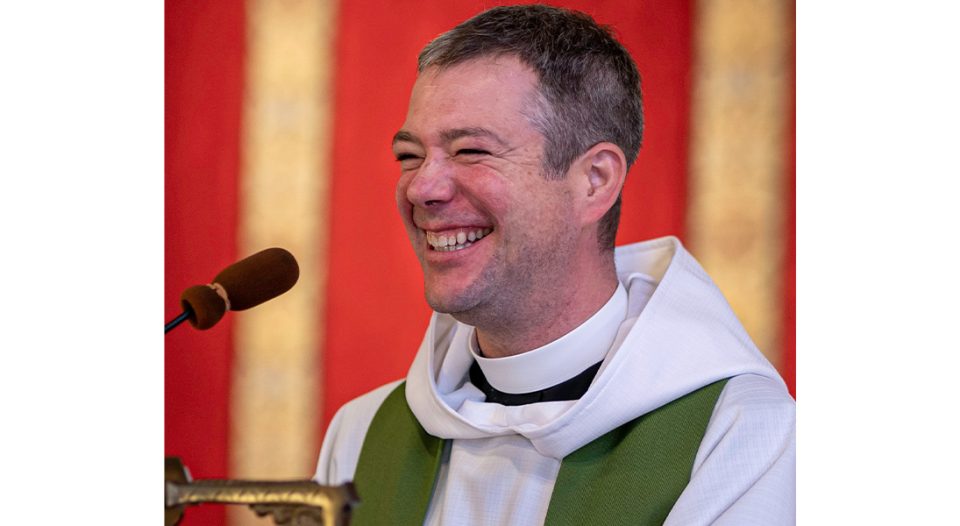Bryan Penman sees the biggest challenge facing the ELCA as its greatest opportunity: offering a new, more resilient way of being church as congregations emerge from the post-pandemic era. “The older institutional structures of our church are hindering our mission,” he said. “The church that is emerging now will let our faith shine in everything we do.”
Penman, who was elected May 4 to serve as bishop of the Southeastern Pennsylvania Synod, has some firsthand knowledge of supporting this vision of an emerging church. In addition to serving as pastor of St. Mark Lutheran Church in Conshohocken, Pa., since 2013, he has been co-director for evangelical mission in the synod since 2022. In that role he has been a driving force behind the synod’s “Love Revolution” proposal, operating with a grant of more than $1 million from the Lilly Endowment Inc.
“We’re helping congregations return to the basics,” Penman said of the proposal. “At the heart of the Love Revolution is the development of spiritual and leadership skills, focusing on loving God and loving our neighbors—Jesus’ two most important commandments. We will help congregations clarify their sense of purpose and help them draw more people into the way of Jesus.”
As the synod pursues this work, it will also address what Penman sees as its second great challenge: dismantling the ELCA’s structural biases. “These biases prevent us from fully loving our neighbors and appreciating all of God’s creation,” he said. “Creating a more connected and diverse church that values everyone’s gifts has long been a core value for our synod, and we continue to strive to make this a lived reality.”
“We will help congregations clarify their sense of purpose and help them draw more people into the way of Jesus.”
Penman, who will be installed as bishop on Sept. 14, readily admits that the synod hasn’t always met these goals. “But we are committed to ensuring that everyone has a place at our table,” he said.
He believes part of that approach may mean rethinking what leadership looks like in the church. “With the rise of vacancies in congregations, we are going to see more alternative leadership models surface,” Penman said. “I think this is also a great opportunity to call more gifted leaders into the church. We have an opportunity here to follow what the Spirit might be doing to raise new and different kinds of leaders.”
In his work with the synod’s congregations, Penman has also seen how leaders have been flexible to meet the needs of the communities they serve. “Pastors and deacons will always be needed, but the way they relate to congregations or multiple congregations might be shifting.
“If we keep the focus on the Lutheran witness being furthered in a place, I think God might surprise us with what’s truly possible.”






